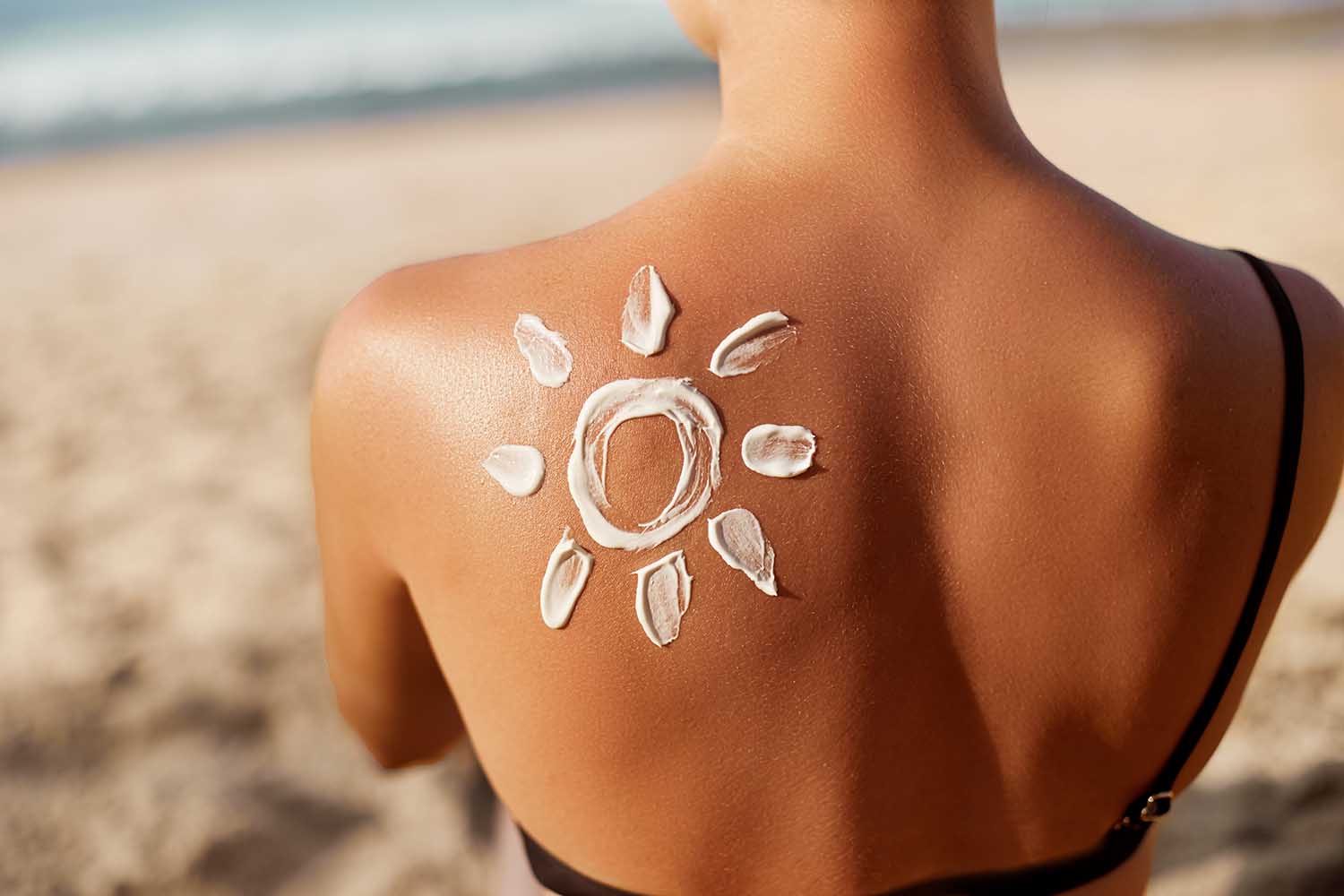Advertisement
10 Simple Home Remedies for Sunburns
Too much sun? Relieve itching, pain, and redness with at-home tips and tricks
Fact-Checked
This article has been written and fact-checked by experts in the field.

Apply aloe vera
Whether you’ve enjoyed a day at the beach, the pool, or simply spent a little too much time outdoors, if you forgot to apply sunscreen, you’ve likely felt the unpleasant sensation of a sunburn. Don’t sweat it though. There are some simple things you can do at home to help promote healing and relieve discomfort.

One of the most popular natural home remedies for sunburn, applying aloe vera to the burn can help to relieve pain associated with a sunburn. The gel inside the thick leaves of this green plant can help promote healing. The succulent also contains a compound called aloin, which has been shown to give the plant anti-inflammatory benefits. If you have an aloe plant at home, simply break off a piece and squeeze out the gel from the inside to apply to your skin. Alternatively, you can also find aloe vera gel at many health food stores.
Try a cool compress

Another soothing option for relieving the pain associated with a sunburn is to apply a cool compress. Try wrapping an ice pack in a damp cloth and apply to the skin for best results. Never apply ice directly to a sunburn as this could cause further damage the skin.
Take a cold bath or shower

Cooling the skin provides relief from sunburns, so a cold bath or shower is another great option to relieve discomfort. Avoid using soaps over the burn area or staying in the tub for too long, as both can cause the skin to dry out further. It’s best to gently pat the skin to dry yourself, as rubbing can be irritating and painful.
Slather on moisturizer

After you get out of the bath or shower, apply a moisturizer while skin is still damp to help lock in moisture and help prevent the skin from drying out. Moisturizers that contain aloe vera or soy are the best options. Apply moisturizer regularly throughout the day to help prevent the skin from becoming dry and uncomfortable. You’ll likely need to apply moisturizer regularly for several days. It’s best to avoid petroleum or oil-based ointments, as these can trap the heat in the burn and make it more uncomfortable.
Try an oatmeal soak in the tub

Adding a little colloidal oatmeal into your bath can help up the sunburn-soothing ante, as well as working to increase moisture. You can easily make your own colloidal oatmeal at home by finely grinding uncooked whole oats in a blender or food processor. Add about 1 cup (250 mL) to your bath to glean its healing properties. Some people also find relief from sunburn by adding green tea to the tub. Green tea contains catechins, which can help to repair damage to the skin.
Dab with witch hazel

Witch hazel contains tannins, an anti-inflammatory compound that can help reduce swelling and redness caused by sunburns. To reap the soothing effects of this astringent, soak a cotton ball or pad with witch hazel and apply to the skin for about 20 minutes. You can use this several times a day, as needed for relief. You can also add it to cool water and a washcloth for a soothing compress.
Smooth on some hydrocortisone cream

Applying an over-the-counter 1 percent hydrocortisone cream can help provide relief from the redness and swelling associated with sunburns. Calamine lotion may also provide relief, but avoid those with an added antihistamine. Also avoid applying rubbing alcohol as this can cool the skin too much. Further, you should avoid applying products that end with “-caine”—such as lidocaine and benzocaine—as they can cause further irritation to the skin or even an allergic reaction.
Take a pain reliever

If the pain from a sunburn is really uncomfortable, taking an over-the-counter non-steroidal anti-inflammatory, such as ibuprofen or aspirin, can help to decrease pain. It can take several days for the extent of a sunburn to become clear, and several more for it to begin healing, so speak with your health care practitioner if you need help managing your pain.
Spread some honey on it

Known for its antibacterial, anti-inflammatory, and antiviral properties, honey can help protect your skin from becoming infected following a sunburn. It also helps to reduce inflammation and keep skin moisturized following a burn. If possible, you’ll want to skip the bear-shaped version and opt for a medical-grade variety instead, as it’s proven more effective in treating first and second-degree burns.
Don’t forget to stay hydrated

A sunburn not only dries the skin, but can also lead to dehydration. That’s why it’s important to stay hydrated following a sunburn. While your skin heals, you can rehydrate by drinking extra liquids, such as sports drinks, juice, broth-based soups, and plain ol’ water.





